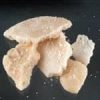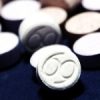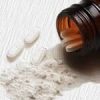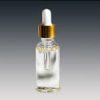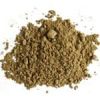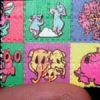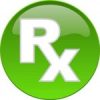Ritalin: Introduction
A growing number of teenagers and young adults believe that Ritalin can improve their learning ability. Buy a pill and get an entire night of study with the distinct feeling of being “focused.”
But just like cocaine or any other stimulant which causes an “up feeling,” a “crash” follows after the drug wears off. It creates a feeling of fatigue, depression, decreased alertness, and sleeplessness. The danger begins when the user comes to realize that these symptoms can be bypassed with the help of another pill.
Is Ritalin Addictive?
The Drug Enforcement Administration (DEA) considers Ritalin to have a high potential for abuse. In June 2005, the US Food and Drug Administration issued a series of public health advisories warning that Ritalin and drugs like it may cause visual hallucinations, suicidal thoughts, and psychotic behaviour, as well as aggression or violent behaviour.How is it Used, and What Does it Look Like?
Some will take Ritalin in pill form. When crushed into powder, some will snort or inject it. With this method, its absorption by the body is faster and gives an immediate high. The drug becomes far more powerful and dangerous when taken this way.
Ritalin is a small pill with the word “Ciba” on it. It is about the size and shape of an aspirin. The 5 mg tablets are yellow, the 10 are green, and the 20 are pale yellow.
Ritalin Abuse Signs and Symptoms
If you suspect someone you know may have an addiction to Ritalin, look for the following signs and symptoms:
- Reduced appetite and weight loss
- Agitation
- Pupil dilation
- Dizziness/feeling faint
- Fatigue
- Depression
- Headaches
- Sweating
- Insomnia
- Impaired vision
- Rapid heart rate
- Stomach pain
Long-term use of Ritalin may lead to the following symptoms:
- Grandiosity (an unrealistic sense of superiority
- Repetitive actions (OCD-like behaviour)
- Paranoia
- Auditory hallucinations
- Tendency toward violence
Signs of Ritalin Overdose
Overdose of stimulants can be deadly – even for a prescription medication like Ritalin. If you recognize any of the following symptoms or signs in someone, call immediately for emergency medical aid:
- Uncontrolled vomiting
- Severe hallucinations
- Markedly dilated pupils that are unreactive to light
- Extremely flushed skin and elevated body temperature
- Dryness of the mouth or nose
- Rapid heartbeat
- Crushing chest pain and shortness of breath
- Seizure and convulsions
- Loss of consciousness
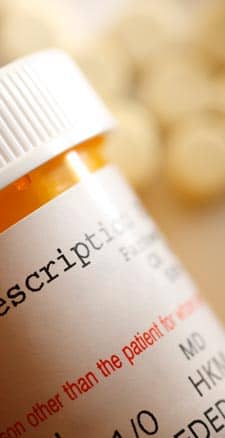
Street Names
Ritalin is also known as Diet Coke; Kiddie Cocaine; Kiddie Coke; Poor man’s cocaine; R-ball; Rids Skittles; Smarties; Vitamin R
Ritalin Withdrawal
It can be easy to form an addiction to Ritalin, but withdrawing from it is more difficult. The effects of withdrawal will occur from one to two hours after the regular use time if not taken. Some withdrawal symptoms include extreme fatigue, disturbed sleep patterns, depression, and irregular heart rhythms.
Ritalin withdrawal is not life-threatening. Because of its intense discomfort, it can lead the user back to abusing the drug.
The severity of withdrawal depends on the length, dosage, and frequency of the abuse.
The withdrawal symptoms can last anywhere between a few days to several months. The unpleasant, harsher withdrawal effects should disappear within a week or two. However, people have reported feeling tired with increased appetite, depression, and cravings beyond the initial 30 days.
Does Ritalin make you smarter?
Teenagers and young adults alike are abusing prescription stimulants to boost their study performance in an effort to improve their grades in school. And there is a widespread belief that these drugs can improve a person’s ability to learn (“cognitive enhancement.”)
Prescription stimulants do promote wakefulness, but studies have found that they do not enhance learning or thinking ability when taken by people who do not have ADHD. Also, research has shown that students who abuse prescription stimulants actually have lower GPAs in high school and college than those who don’t.
List of Drugs
REVIEWS

Carole Pelland
Substance Abuse
Digital Marketing Administrator
& Author



